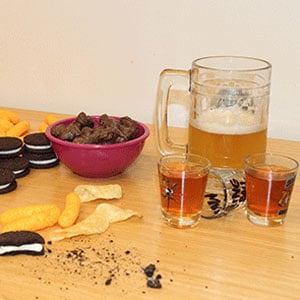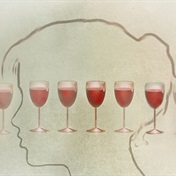
Washington University researchers have found that some of the same genes may be involved in alcohol dependence and eating disorders.
Part of the risk for alcohol dependence is genetic, and the same is true for eating disorders. Now, researchers at Washington University School of Medicine in St Louis have found it’s likely that some of the same genes are involved in both.
In the September issue of the Journal of Studies on Alcohol and Drugs, the researchers report that people with alcohol dependence may be more genetically susceptible to certain types of eating disorders and vice versa.
“In clinical practice, it’s been observed that individuals with eating disorders also have high rates of alcohol abuse and dependence,” said Melissa A. Munn-Chernoff, PhD, the study’s first author. “Other studies have focused on the genetic connections between alcohol dependence and eating disorders, but all of those studies looked only at women. Ours was the first to include men as well.”
According to Munn-Chernoff, a postdoctoral research scholar in psychiatry, that’s important because although eating disorders tend to be thought of as a female problem, they affect men, too.
Gathered data
Studying data gathered from nearly 6 000 adult twins in Australia, Munn-Chernoff and her colleagues found that common genetic factors underlie alcoholism and certain eating-disorder symptoms, such as binge eating and purging habits that include self-induced vomiting and the abuse of laxatives.
By studying twins, the researchers used statistical methods to determine the odds that certain traits result from the same genes. Those statistical insights are based on the fact that identical twins share 100% of their genetic makeup while fraternal twins share about half.
“By comparing the findings in identical and fraternal twins, we can develop estimates of how much of the difference in particular traits is due to genes or environment,” Munn-Chernoff explained. “We found that some of the genes that influence alcohol dependence also influence binge eating in men and women.”
Even with the growing awareness and more frequent diagnoses of problems such as anorexia nervosa and bulimia nervosa, rates of the full-blown forms of these disorders are relatively low, and they’re rare in populations of twins. So the researchers surveyed study subjects about whether they suffered from eating-disorder symptoms.
“The symptoms can cut across multiple eating disorder diagnoses,” said Munn-Chernoff. “And several past studies have suggested that the particular behaviour of binge eating, as well as purging and other practices that we call compensatory behaviours, may be closely associated with alcohol dependence, which is why we focused on those symptoms.”
Significant correlation
All of the men and women in the study were surveyed about their alcohol use and binge eating, but because the researchers were analysing data that had been gathered previously for a different study, not everyone was asked about compensatory behaviours, such as purging or using laxatives and diuretics. Only the female twins were asked about those symptoms.
In all, nearly 25% of the men and 6% of women had been alcohol dependent at some point. Almost 11% of these same men and 13% of the women had experienced problems with binge eating. In addition, about 14% of the women had engaged in purging or abuse of laxatives or diuretics.
On a statistical scale that runs from zero (no shared genes) to 1 (all genes shared), the researchers found that the genetic correlation between binge eating and alcohol dependence was statistically significant at 26.
Among women in the study, the genetic correlation between compensatory behaviours and alcohol dependence was significant at 32.
“Those numbers suggest that there are shared genetic risk factors for these behaviours, such as purging and fasting,” said Munn-Chernoff. “It appears that some genes that influence alcohol dependence also influence binge eating in men and women, and compensatory behaviours in women.”
In the future, Munn-Chernoff would like to expand the scope of the study. Because most of the twins in this data set were Caucasian, she’d like to study twins of different races to see whether these genetic findings occur in other ethnic groups. She also would like to get beyond statistical relationships and gather blood or saliva samples in an attempt to identify the actual genes that contribute both to alcohol dependence and eating-disorder symptoms.
She believes physicians and therapists who treat people for alcohol dependence and eating disorders should be more aware that the problems can occur together.
“When you go to an eating disorder treatment centre, they don’t often ask questions about alcoholism. And when you go for alcoholism treatment, they don’t generally ask questions about eating disorder symptoms,” she said. “If centres could be aware of that and perhaps treat both problems at the same time, it would be a big help.”




 Publications
Publications
 Partners
Partners











